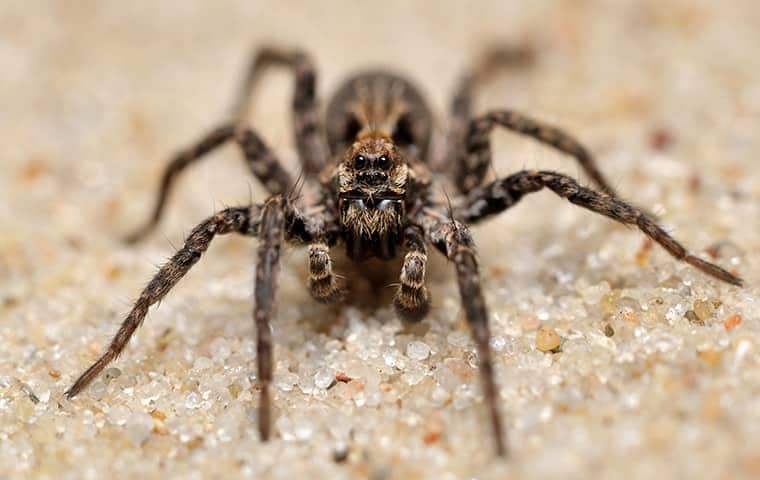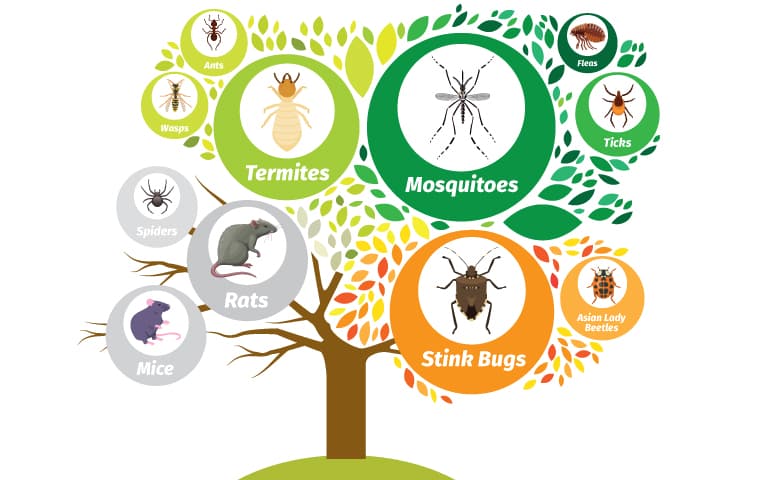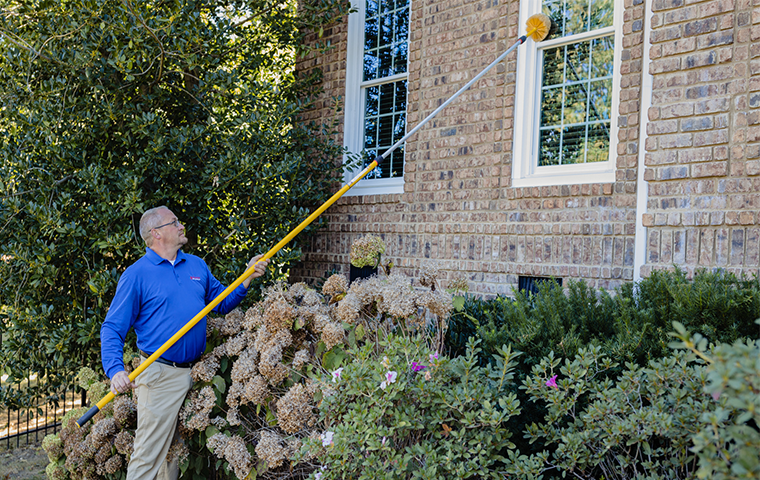Is It A Wolf Spider?
Are you familiar with the group of spiders in Tennessee we call wolf spiders? They are common invaders in our Tennessee service area. So, there is a pretty good chance that, if you live in Tennessee, you've seen one, even if you don't know what they look like. Let's take a moment and talk about the many ways you can distinguish wolf spiders from other spiders. Proper identification is the first step in effective pest control in Tennessee.
Bugs are often given names that help to describe them. In this case, the word wolf was used. If you understand why, you'll have an easier time figuring out whether or not you have wolf spiders. Here are 6 reasons these spiders are called wolf spiders:
- They hunt their prey, like a wolf. Unlike other spiders that build webs to catch food, wolf spiders use their great eyesight to hunt their prey down. If you see a spider sitting in a web, there is a good chance that it is not a wolf spider. In fact, wolf spiders don't spin webs at all.
- Wolf spiders are fast, just like a wolf. Some entomologists call wolf spiders the cheetahs of the spider world. They can cover a lot of ground quickly at 2 feet per second.
- Like a wolf, these spiders jump onto their prey. They can also jump onto your arm or your leg and bite. But, most of the time, they prefer to avoid humans.
- They're hairy, just like a wolf. If you see a big hairy spider sitting next to a pool of water in your garage, it may be a wolf spider. There aren't many hairy spiders that get into our homes.
- Just like wolves, these spiders are medium in size. While not as big as a tarantula, they are also not as small is the American house spider. They fit right into the middle at a size of between 3/8 - 1 3/8 for females and 1/4 - 3/4 for male spiders.
- Wolves are often found living in caves. If you see a spider crawling out of a hole, which is sort of like a cave, there is a good chance it is a wolf spider.
There are many species of wolf spider, and they each have different visual characteristics. One of the most common wolf spider species here in Tennessee is Rabidosa rabida, also known as the rabid wolf spider. This species of wolf spider is easy to recognize with its two dark brown stripes on its tan back. These stripes run the length of its cephalothorax, which is its head and thorax. The rabid wolf spider is slim compared to other wolf spiders. If you see a fat, hairy spider, it may be Hogna carolinensis, which is also quite common here.

Prevention Tips For Wolf Spiders
Wolf spiders come into your yard to eat bugs. One of the best ways to prevent wolf spiders is to do things that reduce bug populations in your yard.
Here are a few ways you can reduce bugs:
- Keep trash in sealed trash cans. This will keep the aroma of your trash in and prevent bugs from breeding and feeding on decaying organic material in your trash.
- Reduce areas of moisture. If you have a leaky spigot, an obstructed gutter, excessively shaded areas where rainwater doesn't dry up quickly, or some other condition that is causing moisture, you'll have moisture pests. And wolf spiders eat many moisture pests. Those areas of moisture will also give wolf spiders a drink while they hunt for bugs on your property.
- Light attracts bugs, and bugs attract wolf spiders. By keeping your shades drawn at night, and keeping exterior lights off, you'll reduce bugs in your yard, along with the spiders that eat them.
- Leaf piles and other organic debris create a harborage for bugs and wolf spiders. If you keep those leaves raked up, you'll resist both.
- Lawn clutter, tall grass, and weeds all make your yard more inviting to bugs. Keeping things neat will make your yard less interesting.
Along with bug reduction, it is important to do an inspection of your exterior walls and seal any entry points you find. Replace or repair screens, door sweeps, and weather-stripping, and fill holes and gaps in with caulk.
The best protection from wolf spiders and other household pests include routine visits from an educated pest control professional. Give us a call today to learn more about our residential and commercial pest control services in Tennessee.
We're Ready To Help
Call Our Office or Complete the Form To Get Your Customized Quote
 1077 Reviews
1077 Reviews







